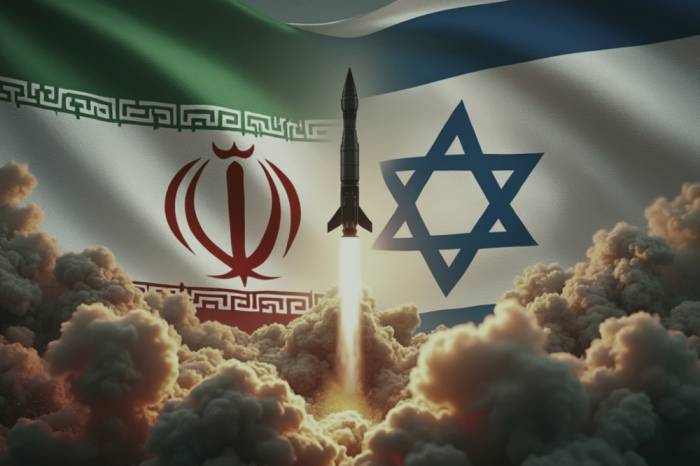The ongoing tensions between Israel and Iran represent one of the most precarious geopolitical rivalries in the Middle East today. As each nation pursues its national interests, the risk of conflict looms larger, drawing in global powers and threatening regional stability.
Israel and Iran continue to exchange threats, escalating fears of a potential regional conflict. Following a heavy missile strike launched by Iran on Israel on October 1, Tel Aviv, backed by Washington, vowed to respond. In turn, Iran warned that any Israeli retaliation would provoke an even harsher response.
After Iran’s missile attack, Israeli Prime Minister Benjamin Netanyahu stated that Tehran had made a “big mistake.”
Meanwhile, Israel continues its military operations against Hamas in Gaza and Hezbollah in Lebanon.
The conflict with Hamas has intensified significantly, leading to devastating impacts on civilians in Gaza. The humanitarian situation has reached critical levels, prompting urgent calls for ceasefires and humanitarian aid.
Recently, Philippe Lazzarini, Head of the United Nations Relief and Works Agency for Palestine Refugees (UNRWA), called for a temporary truce to facilitate the evacuation of people from northern Gaza, as health officials report dwindling supplies for treating those injured during Israel’s three-week-long offensive.
“Our staff report they cannot find food, water, or medical care. The smell of death is everywhere as bodies are left lying on the roads or under the rubble. Missions to clear the bodies or provide humanitarian assistance are denied,” Lazzarini stated.

The threat from Hezbollah, based in Lebanon, complicates the situation further. The group’s military capabilities and close ties to Iran present ongoing security challenges for Israel. Skirmishes along the Israeli-Lebanese border and Hezbollah’s rhetoric have fueled fears of a broader conflict.
On October 19, a drone was launched toward Israeli Prime Minister Benjamin Netanyahu’s home in the northern Israeli town of Caesarea. A spokesman confirmed that the premier was not present and there were no casualties. On October 22, Hezbollah claimed responsibility for the drone attack. On October 23, Israel confirmed the killing of the presumed next leader of Hezbollah, Hisham Safieddine , in an airstrike on southern Beirut earlier in October. These incidents have further escalated tensions between Israel and Hezbollah.
Overall, the situation demands urgent international attention and diplomatic efforts to address the root causes of these conflicts, prioritize civilian safety, and work towards sustainable resolutions.
The U.S. has deployed the THAAD anti-missile system, one of its most advanced technologies, to Israel, along with 100 troops to operate it. This move underscores Israel’s determination to retaliate against Iran. However, many are left wondering why Israel has not responded more aggressively to Iran, especially considering its military capabilities. This delay is not a sign of weakness; rather, it reflects a complex interplay of strategic considerations that underpin Israel’s approach to a volatile regional landscape.

A significant factor in Israel’s delay is the emphasis on intelligence gathering and operational planning. A hasty response could compromise the effectiveness of future operations. By waiting, Israel can gather more intelligence on Iranian activities, enabling it to target its responses more precisely. This strategic patience could lead to a more impactful and effective retaliation that achieves Israel’s objectives without unnecessary collateral damage.
On October 23, Israeli Defense Minister Yoav Gallant told Air Force crews that after striking in Iran, the world will understand Israel’s might. “After we attack Iran, people in Israel and elsewhere will understand the extent of your preparations,” Gallant emphasized.
However, certain sources allege that Israel fears direct confrontation with Iran due to the latter’s nuclear ambitions. An Israeli strike might indeed delay Iran’s nuclear program, but it could also provoke a desperate response from Tehran. Iran could accelerate its efforts, potentially leading to an even more advanced nuclear capability in the future.
Meanwhile, Western media claims that a leak of U.S. intelligence documents reportedly prompted Israel to postpone its retaliatory attack on Iran.
“The leak of American documents delayed the attack due to the need to revise certain strategies and components,” The Times reported, citing an intelligence source. The U.S. is currently investigating a leak of classified documents detailing an assessment of Israel’s plans to target Iran, as confirmed by House Speaker Mike Johnson.
In conclusion, Israel’s planned retaliation against Iran represents a high-stakes gamble with potentially devastating consequences. While the desire to neutralize threats is understandable, the path forward must be navigated with caution and foresight. A balanced approach that prioritizes diplomatic engagement alongside credible deterrence may offer the best hope for long-term stability in the region.
(If you possess specialized knowledge and wish to contribute, please reach out to us at opinions@news.az).
